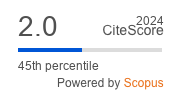The implications of entrepreneurship education on the careers of PhDs: evidence from the challenge-based learning approach
DOI:
https://doi.org/10.23726/cij.2021.1285Keywords:
Entrepreneurship education, challenge-based learning, PhD’s careers, start-ups, publications, H-index, Third MissionAbstract
We analysed the academic and business outcomes of 73 PhDs who attended an entrepreneurial education program, co-designed by two universities in collaboration with an international research center, in the last five years, and compared these results against 73 PhDs who did not attend the program. We based our analysis on a mix of quantitative and qualitative data regarding scientific and entrepreneurial achievements, as well as interviews with former program participants. Evidence from our analysis shows a positive effect of the entrepreneurial education program on the academic and business outcomes of PhDs.
References
Barr, S., Baker, T., Markham, S. & Kingon, A., 2009. Bridging the Valley of Death: Lessons Learned from 14 Years of Commercialization of Technology Education, Academy of Management Learning & Education, 8 (3): pp. 370-388.
Battaglia, D., Paolucci, E. & Ughetto, E., 2021. The fast response of academic spinoffs to unexpected societal and economic challenges. Lessons from the COVID-19 pandemic crisis, R&D Management, 51 (2): pp. 169-182.
Carree, M., Malva, A. D. & Santarelli, E., 2014. The contribution of universities to growth: Empirical evidence for Italy, Journal of Technology Transfer, 39 (3): pp. 393-414.
Cimenler, O., Reeves, K.A. & Skvoretz, J. A., 2014. A regression analysis of researchers' social network metrics on their citation performance in a college of engineering, Journal of Informetrics, 8 (3): pp. 667-682.
Colombelli, A., 2016. The impact of local knowledge bases on the creation of innovative start-ups in Italy, Small Business Economics, 47 (2): pp. 383-396.
Duval-Couetil, N., Ladisch, M. & Yi, S., 2020. Addressing academic researcher priorities through science and technology entrepreneurship education, Journal of Technology Transfer, Article in Press.
Duval‐Couetil, N. & Wheadon, M., 2014, Enhancing the employability of doctoral students through entrepreneurship education. In Annals of Entrepreneurship Education and Pedagogy, Moris, M.H., (eds.). Edward Elgar Publishing Ltd : Cheltenham , UK, pp. 257-279.
Etzkowitz, H., Webster, A., Gebhardt, C. & Terra, B.R.C., 2000. The future of the university and the university of the future: evolution of ivory tower to entrepreneurial paradigm, Research Policy, 29 (2): pp. 313-330.
European Commission, 2008. Best procedure project: Entrepreneurship in Higher education, especially in non-business studies. report of the expert group. Retrieved April 16, 2008, from https://ec.europa.eu/growth/content/final-report-expert-group-entrepreneurship-higher-education-especially-within-non-business-0_en
Gould, J., 2015. How to build a better PhD, Nature, 528(7580): pp. 22-25.
Hirsch, J.E., 2005. An index to quantify an individual's scientific research output, Proceedings of the National Academy of Sciences of the United States of America, 102 (46): pp. 16569-16572.
Kalar, B., & Antoncic, B., 2015. The entrepreneurial university, academic activities and technology and knowledge transfer in four European countries, Technovation, 36: pp. 1–11.
Linton, J.D., & Xu, W., 2021. Research on science and technological entrepreneurship education: What needs to happen next?, Journal of Technology Transfer, 46 (2): pp. 393-406.
McNabola, A. & Coughlan, P., 2014, Exploiting the thesis research: Educating engineering PhD students to think and to act entrepreneurially, 2014 SEFI Annual Conference, Birmingham.
Miller, K., Mcadam, M. & Mcadam, R., 2014. The changing university business model: A stakeholder perspective, R&D Management, 44 (3): pp. 265-287.
Muñoz, C.A., Guerra, M.E. & Mosey, S., 2020. The potential impact of entrepreneurship education on doctoral students within the non-commercial research environment in Chile, Studies in Higher Education, 45 (3): pp. 492-510.
Philpott, K., Dooley, L., O’Reilly, C. & Lupton, G., 2011. The entrepreneurial university: examining the underlying academic tensions, Technovation, 31 (4): pp. 161-170.
Fini, R., Perkmann,K., & Ross, J.M., 2021. Attention to Exploration: The Effect of Academic Entrepreneurship on the Production of Scientific Knowledge, Organization Science, Article in Press.
Ricci, R., Colombelli, A., Paolucci, E., 2019. Entrepreneurial activities and models of advanced European science and technology universities, Management Decision, 57 (12): pp. 3447-3472.
Rippa, P., Landi, G., Cosimato, S., Turriziani, L. & Gheith, M., 2020. Embedding entrepreneurship in doctoral students: the impact of a T-shaped educational approach, European Journal of Innovation Management, Article in Press.
Thursby, M., Fuller, A. & Thursby, J., 2009. An integrated approach to educating professionals for careers in innovation, Academy of Management Learning and Education, 8 (3): pp. 389-405.
Toole, A.A., & Czarnitzki, D., 2010. Commercializing science: Is there a university “brain drain” from academic entrepreneurship? Management Science, 56 (9): pp. 1599 -1614.
Downloads
Published
How to Cite
Issue
Section
Categories
License
Copyright (c) 2021 Alessandra Colombelli, Andrea Panelli, Emilio Paolucci

This work is licensed under a Creative Commons Attribution 4.0 International License.
Authors who publish with this journal agree to the following terms:
- Authors retain copyright and grant the journal right of first publication with the work simultaneously licensed under a Creative Commons Attribution License that allows others to share the work with an acknowledgement of the work's authorship and initial publication in this journal.
- Authors are able to enter into separate, additional contractual arrangements for the non-exclusive distribution of the journal's published version of the work (e.g., post it to an institutional repository or publish it in a book), with an acknowledgement of its initial publication in this journal.
- Authors are permitted and encouraged to post their work online (e.g., in institutional repositories or on their website) prior to and during the submission process, as it can lead to productive exchanges, as well as earlier and greater citation of published work (See The Effect of Open Access).


